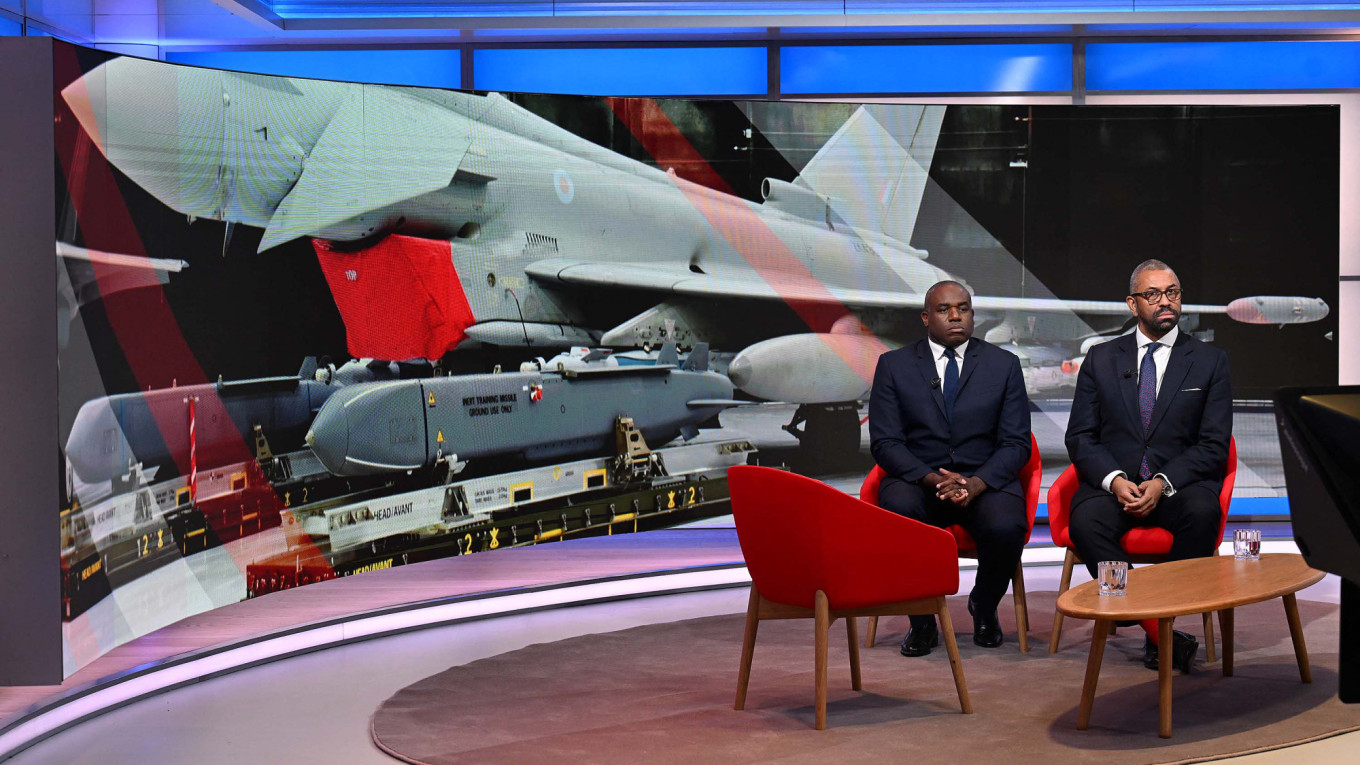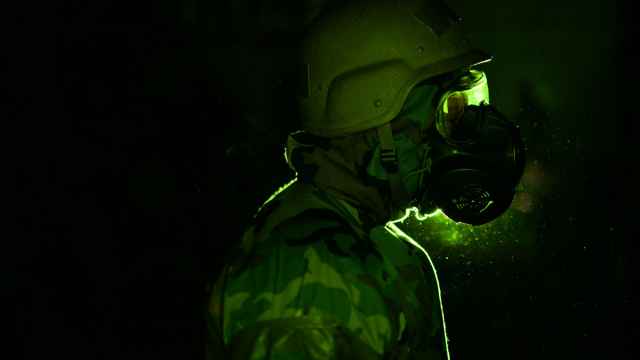UK Foreign Secretary David Lammy accused Russian President Vladimir Putin of "bluster" Sunday over his warning that letting Ukraine use long-range weapons to strike inside Russia would put NATO "at war" with Moscow.
US President Joe Biden and British Prime Minister Keir Starmer met at the White House to discuss whether to ease rules on Kyiv's use of western-supplied weapons this week
"I think that what Putin's doing is throwing dust up into the air," Lammy told the BBC.
"There's a lot of bluster. That's his modus operandi. He threatens about tanks, he threatens about missiles, he threatens about nuclear weapons."
Ukrainian President Volodymyr Zelensky has been asking for permission to use long-range weapons such as British Storm Shadow missiles and US-made ATACMS missiles to hit targets deeper inside Russia for months.
Biden and Starmer delayed a decision on the move during their meeting on Friday.
It came after Putin warned that green-lighting use of the weapons "would mean that NATO countries, the US, European countries, are at war with Russia."
"If that's the case, then taking into account the change of nature of the conflict, we will take the appropriate decisions based on the threats that we will face," he added.
The Russian leader has long warned western countries that they risk provoking a nuclear war over their support for Ukraine.
"We cannot be blown off course by an imperialist fascist, effectively, that wants to move into countries willy nilly," said Lammy.
"If we let him with Ukraine, believe me, he will not stop there."
Lammy said that talks between Starmer, Biden and Zelensky over the use of the missiles would continue at the United Nations General Assembly gathering in New York later this month.
Elsewhere, German Chancellor Olaf Scholz once again ruled out sending long-range precision weapons to Ukraine on Saturday, regardless of decisions made by NATO allies.
A Message from The Moscow Times:
Dear readers,
We are facing unprecedented challenges. Russia's Prosecutor General's Office has designated The Moscow Times as an "undesirable" organization, criminalizing our work and putting our staff at risk of prosecution. This follows our earlier unjust labeling as a "foreign agent."
These actions are direct attempts to silence independent journalism in Russia. The authorities claim our work "discredits the decisions of the Russian leadership." We see things differently: we strive to provide accurate, unbiased reporting on Russia.
We, the journalists of The Moscow Times, refuse to be silenced. But to continue our work, we need your help.
Your support, no matter how small, makes a world of difference. If you can, please support us monthly starting from just $2. It's quick to set up, and every contribution makes a significant impact.
By supporting The Moscow Times, you're defending open, independent journalism in the face of repression. Thank you for standing with us.
Remind me later.






